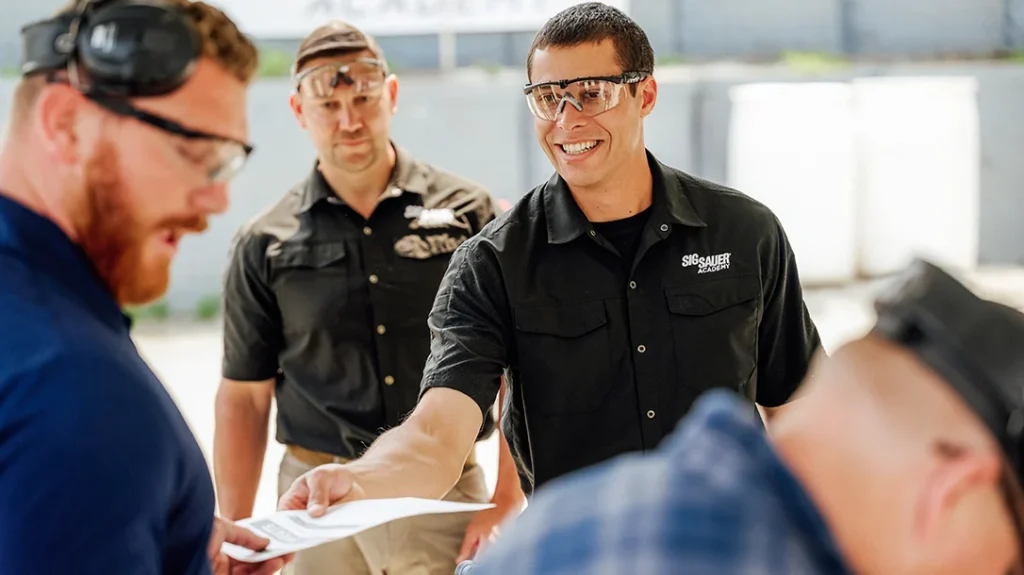Choosing the right firearm instructor isn’t just a checkbox. It’s a foundational decision that shapes your entire training journey. This decision goes far beyond learning how to pull a trigger. It’s about developing responsible habits, cultivating mental discipline, understanding legal frameworks, and mastering life-saving skills in high-stress situations.
How to Choose the Right Firearm Instructor
A great firearms instructor is more than just someone who shoots well. They’re a mentor, safety advocate, and communicator with the ability to adapt lessons to your unique needs. Whether you’re training for personal protection, sport, or professional use, the person guiding you should inspire both confidence and caution. Here’s what to look for when choosing one.
1. Certifications & Credentials: The Bare Minimum You Should Expect
Certification marks the beginning of professional credibility, but it’s not the whole story. A certified instructor has typically completed standardized training, met instructional benchmarks, and demonstrated understanding of legal responsibilities and safety protocols.
Advertisement — Continue Reading Below
Look for credentials issued by nationally recognized training organizations or law enforcement-affiliated programs. These institutions offer structured, vetted training that emphasizes safety, legal compliance, and instructional excellence. When selecting an instructor, consider researching which certifying bodies are most reputable and recognized in your local area or within your intended discipline.
However, it’s not enough to simply see a certificate on the wall. Always take the time to verify these credentials and confirm their relevance to the course you’re taking. Some instructors flash outdated or niche certifications that may not apply to civilian training. Proper vetting ensures you’re learning from someone whose standards align with today’s best practices.
Advertisement — Continue Reading Below
Remember, quality instruction could one day mean the difference between life and death. It deserves careful scrutiny.
2. Real-World Experience: Beyond the Classroom
Certifications reflect what an instructor knows on paper. However, real-world experience reveals the depth of what they’ve actually lived through and adapted to. The most effective firearms instructors draw on personal history, whether from law enforcement or military service, to tailor their teaching to real-life scenarios.
Law enforcement veterans often bring a nuanced understanding of de-escalation, threat identification, and the legal framework surrounding use-of-force decisions, shaped by daily interactions with the public and courtroom scrutiny.
Advertisement — Continue Reading Below
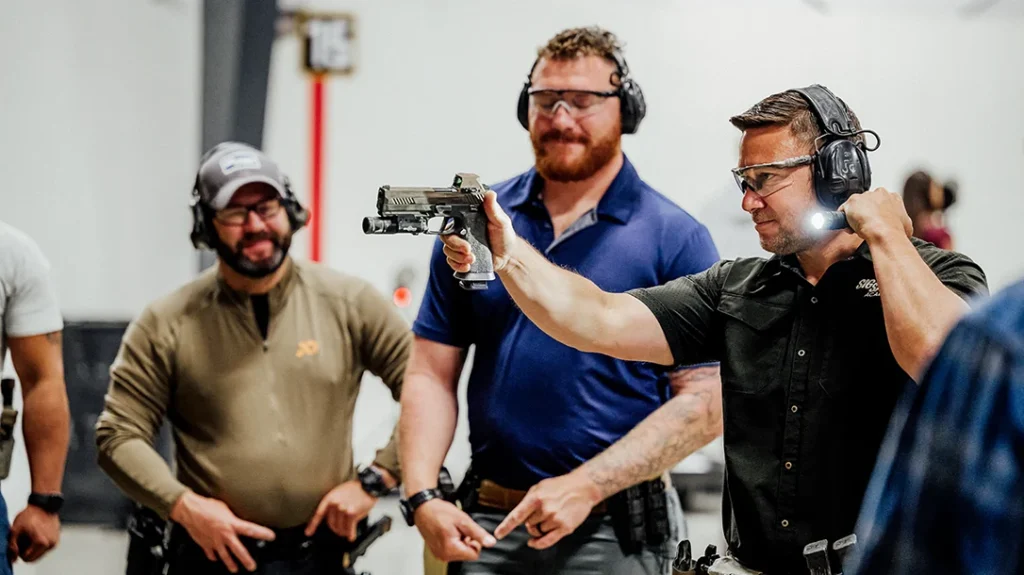
Military-trained instructors contribute insights into tactical efficiency, stress conditioning, and heightened situational awareness, rooted in operational environments where decisiveness and resilience are essential. However, credentials alone don’t guarantee effective instruction.
What truly matters is the instructor’s ability to bridge intense operational experience with civilian safety standards, translating high-stakes lessons into teachable, relatable skills. The goal isn’t just to impress. It’s to prepare students for fast, responsible decision-making under pressure, with skills they can apply in moments that matter most.
Advertisement — Continue Reading Below
3. Teaching Style: Match the Method to Your Mindset
Your learning style matters. Maybe you’re someone who thrives on hands-on instruction, or perhaps you prefer diving into theory before practice. Some instructors lean heavily into technical lectures, while others prefer live-fire sessions and active scenarios.
If possible, meet your prospective instructor beforehand. Observe how they communicate, how they handle questions, and whether they foster a safe and respectful atmosphere. Your comfort level directly influences how well you learn. If the rapport feels off, your training might suffer.
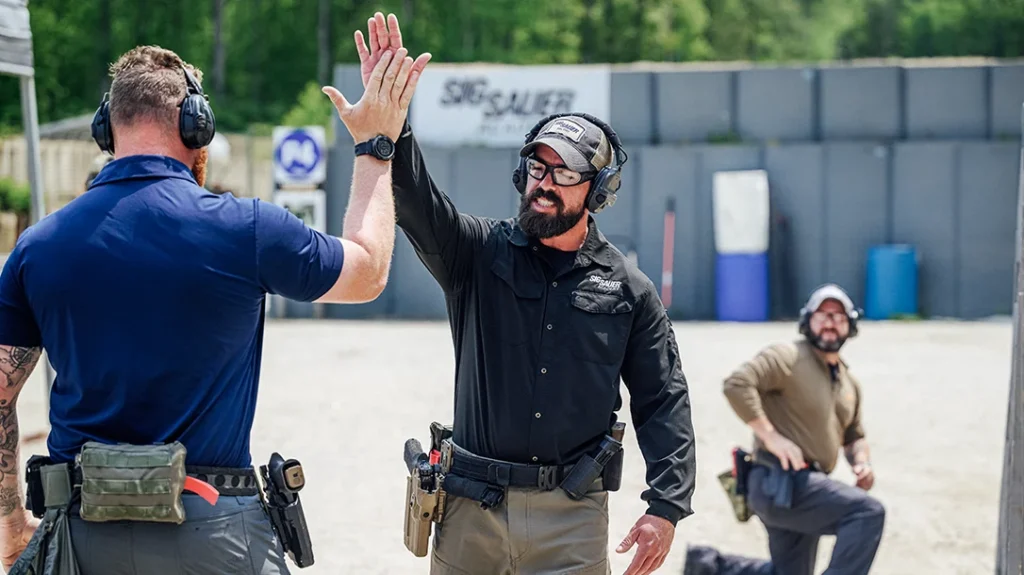
Advertisement — Continue Reading Below
A good instructor is patient, clear, and willing to tailor their approach to help you succeed. They know how to recognize frustration and respond with encouragement, not criticism.
4. Safety First, Last, and Always
Firearms training inherently carries risk, and safety should always be the instructor’s number one priority. Strict protocols, constant supervision, and zero tolerance for unsafe behavior aren’t optional. They’re essential.
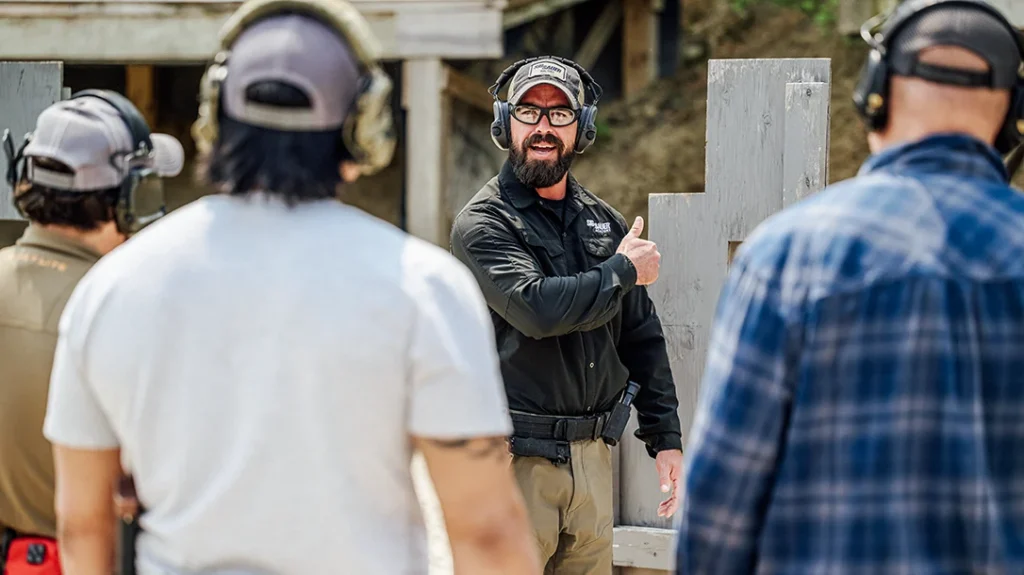
Advertisement — Continue Reading Below
Your instructor should start every session with a review of safety rules, always demonstrate proper handling, and correct violations immediately. Red flags include an overly casual attitude toward live-fire drills, inconsistent rule enforcement, or a tolerance for reckless behavior.
Safety isn’t just about avoiding accidents. It’s about building habits that protect you and those around you. If it’s not emphasized from day one, it’s time to walk away.
5. Course Content: Custom Fit to Your Goals
Not all firearms courses are created equal. Some are designed for beginners with no prior experience, while others cater to seasoned gun owners refining advanced skills. It’s important to review course outlines before enrolling. Look for clearly stated objectives, coverage of legal responsibilities, and a blend of classroom theory and practical drills.
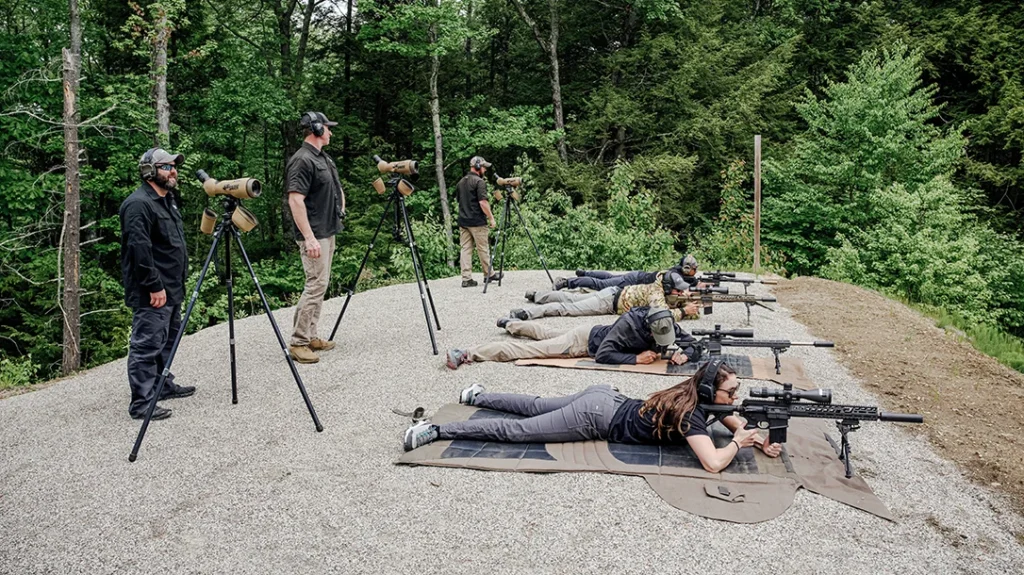
Scenario-based exercises are especially valuable, as they mimic real-world situations and help trainees build decision-making skills under stress. Make sure your course helps you grow toward your specific goals, whether they’re personal defense, sport shooting, or tactical readiness.
6. Reviews & Reputation: Ask Around
Word of mouth is one of the most powerful tools at your disposal. Ask trusted friends, visit forums, and read online reviews to get a sense of an instructor’s reliability, communication style, and professionalism.
Look for patterns. Does the instructor have a consistent track record of safety and student satisfaction? Do past trainees describe them as engaging and respectful? Are their courses known for being informative and challenging?
An instructor’s reputation often reflects their teaching style and ethics. Trust your network, but also do your own research.
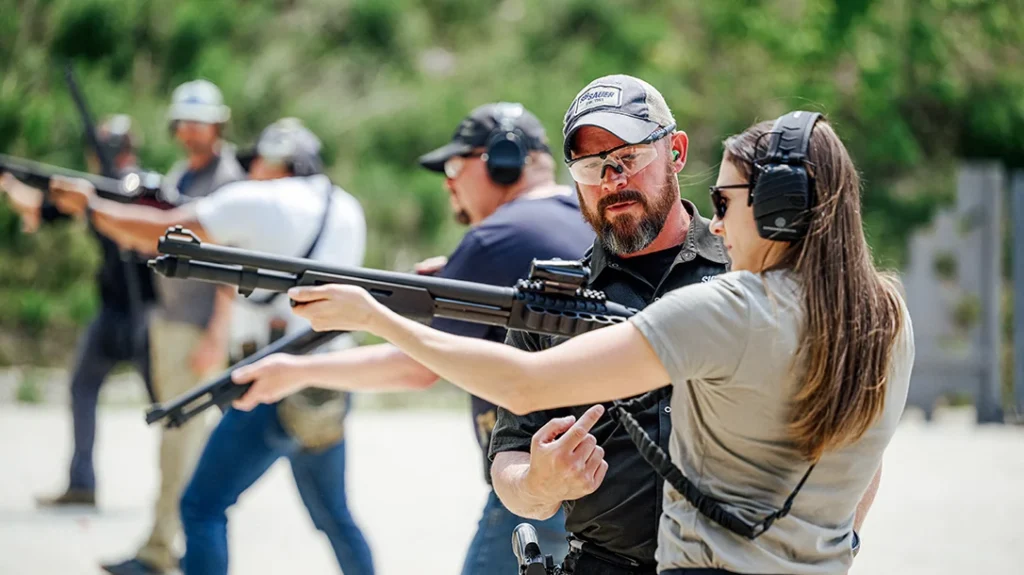
7. Don’t Be Lured by Price Alone
Firearms training isn’t something you want on clearance. While budget matters, choosing an instructor or program solely based on cost is risky. Cut-rate classes may skimp on critical elements like safety, legal instruction, or scenario training.
Think in terms of value: Are you getting hands-on time? Individual attention? Realistic drills? Comprehensive legal context? Quality instruction is worth paying for. It could save your life.
8. Red Flags to Watch For
Stay vigilant for signs of poor training environments:
- Weak emphasis on safety
- Lack of supervision during live-fire drills
- Teaching outdated or ineffective techniques
- Rigid “one-size-fits-all” instruction
- Disrespectful or unprofessional behavior
- No practical or scenario-based training
If any of these red flags pop up, consider alternatives. You deserve training that empowers you, not endangers you.
9. Why Recognized Training Institutions Stand Out
Respected training institutions offer structure, accountability, and credibility. Their instructors are usually vetted, their curricula are regularly updated, and their programs are more likely to meet legal standards.
These schools often maintain ties with law enforcement or licensing bodies, giving graduates an edge when pursuing law enforcement and security roles or certifications. Their classroom settings promote discipline and peer learning, while their field sessions emphasize safety and realism.
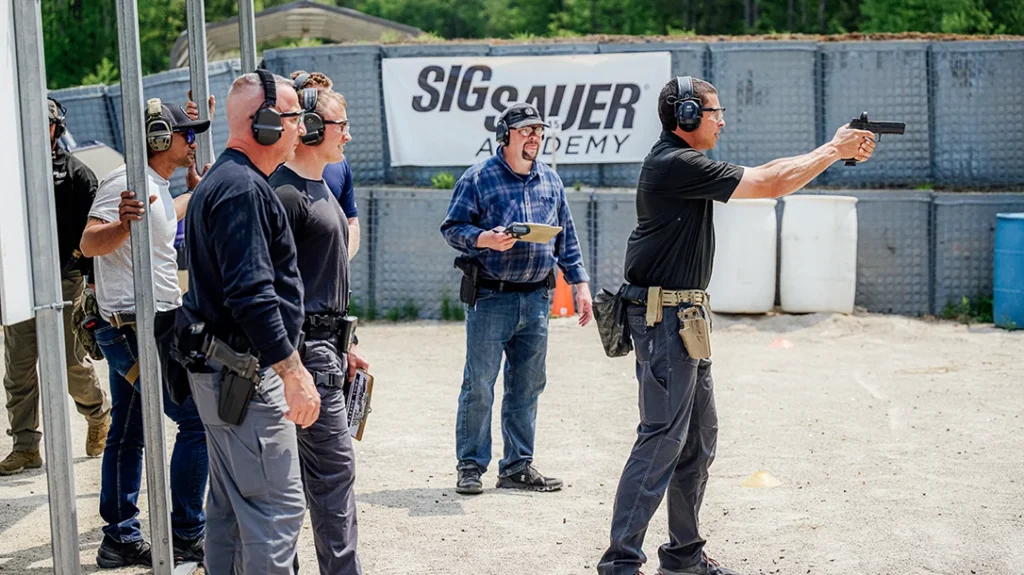
Even if you aren’t seeking professional credentials, training at a reputable institution can give you confidence and peace of mind.
Choosing the Right Firearm Instructor is Worth the Research
Firearms training is about more than marksmanship. It’s about building the discipline to use a weapon wisely, the knowledge to act within the law, and the awareness to keep yourself and others safe. A great instructor doesn’t just teach you how to shoot. They help shape who you are as a gun owner.
So don’t rush the process. Take your time, ask the right questions, and choose an instructor who respects the responsibility that comes with training someone to handle a firearm. You’ll walk away not just with skill, but with confidence and clarity.
